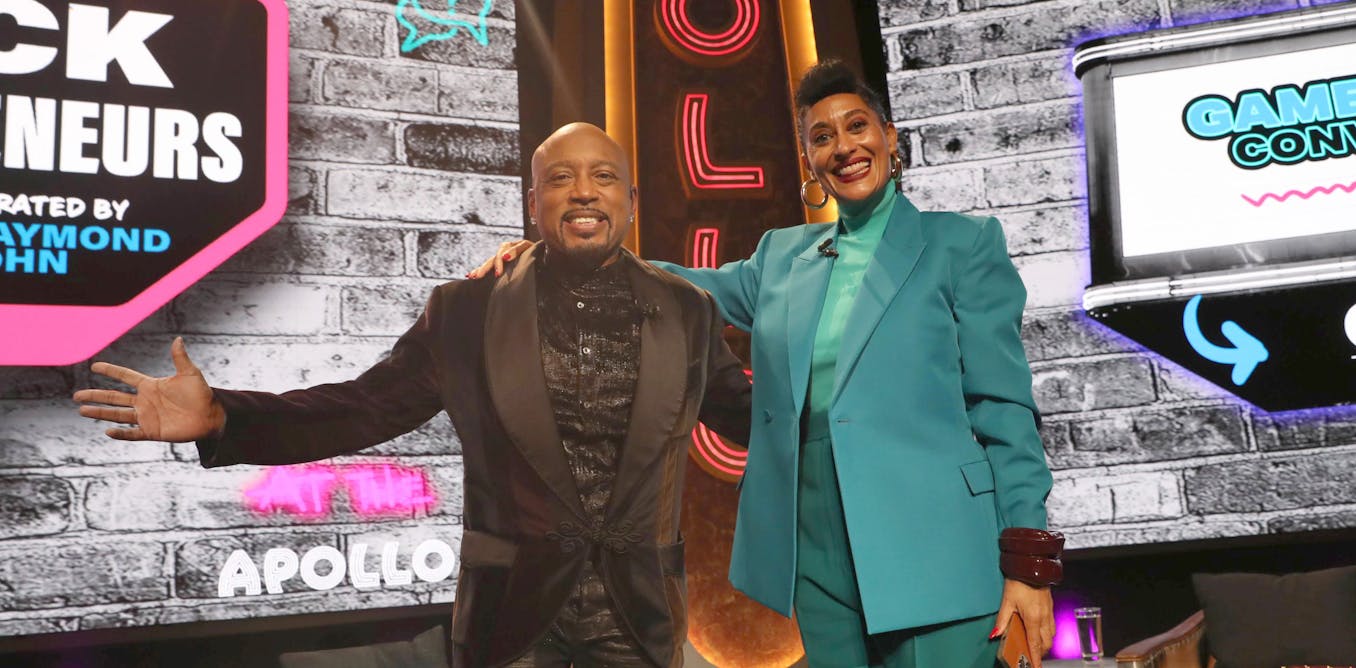Politics
Hopes that Biden will quit his reelection campaign ignore the differences – and lessons – of LBJ and 1968’s Democratic catastrophe
It’s just over six months until Election Day. The president faces a tough fight for reelection. His approval rating has cratered below 40% in the polls, his party is divided over a foreign war, and a bipartisan chorus declares that he’s no longer up to the job. Polls show him running neck and neck with the likely Republican nominee.
Faced with this grim situation, the president decides to put country before his own political ambition and declares he won’t run for reelection.
Joe Biden in 2024?
Nope, it’s Lyndon Johnson in 1968. On March 31 of that year, LBJ shocked the nation when, at the end of a televised address on the Vietnam War, he declared, “I shall not seek, and I will not accept, the nomination of my party for another term as your president.”
Today, a chorus of political commentators predict or hope that Biden will follow LBJ’s example. But 2024 is not 1968, and Joseph Robinette Biden is not Lyndon Baines Johnson.
Divisions over a war
In 1968, the Democratic Party was deeply divided over the Vietnam War. Despite having deployed over 500,000 troops and suffered over 20,000 deaths, the U.S. seemed no closer to victory.
So-called “hawks” demanded that the president hold the line in Vietnam or even escalate further in order to achieve total victory. “Doves” argued that the war was unwinnable and the U.S. should look for a negotiated settlement.
Today, many Democrats oppose Biden’s support for Israel’s Military campaign against Hamas, but it’s easy to overstate this division. A recent Gallup poll found that only 1% of Americans cited “war in the Middle East” as the nation’s top problem.
In contrast, early in 1968, Gallup found that a majority of Americans – 53% – said that Vietnam was the most important issue facing the nation.
Furthermore, most Democrats remain supportive of Israel. A recent Reuters poll found that 46% of Democrats blame Hamas for the war compared with only 22% who blame Israel.
Whatever concerns Democrats might have over Biden, the fact remains that no prominent Democrats have chosen to oppose him for the party nomination. Even leading progressive Democrats like Sen. Bernie Sanders and Rep. Alexandria Ocasio-Cortez have endorsed Biden. Ocasio-Cortez even went so far as to call Biden “one of the most successful presidents in modern American history.”

After LBJ, no unity
In contrast, differences over the Vietnam War and other issues led two sitting U.S. senators, Eugene McCarthy of Minnesota and Robert F. Kennedy of New York, to challenge Johnson for the Democratic nomination. And despite low name recognition and a shoestring campaign, McCarthy even managed a near upset of Johnson in the New Hampshire primary, held on March 12, 1968.
Given these differences, it seems very unlikely that Biden will seek to follow LBJ’s example by dropping out of the race. And for those who hope Biden will do so anyway, they should be careful what they wish for.
Johnson’s withdrawal failed to unify the party. Far from it.
McCarthy, Kennedy and Vice President Hubert Humphrey, who joined the race after Johnson’s exit, fought a bitter battle for the nomination. Tensions exploded during that year’s Democratic convention in Chicago.
Americans watched on live television as police brutally beat anti-war demonstrators in the streets outside the convention hall.
Inside the convention, Sen. Abraham Ribicoff of Connecticut denounced “Gestapo tactics on the streets of Chicago.” In response, Chicago Mayor Richard Daley unleashed a torrent of vulgar, antisemitic comments. Humphrey eventually won the nomination, but his candidacy was deeply wounded and he went on to narrowly lose the election to Richard Nixon.
Should Biden decide not to run, Democrats might face a similar situation.
There is no obvious candidate to replace him, and the contest to do so would likely inflame Democratic divisions over ideology, gender and race. Furthermore, at this late date, it would be nearly impossible to win the nomination via the remaining caucuses and primaries.
Instead, the Democratic convention, slated for late August in Chicago, would probably end up choosing the nominee, leaving him or her open to criticism that they were selected by party bosses rather than the people.
-

 Politics10h ago
Politics10h agoWhy Trump Actually Needs Mexico
-

 Politics10h ago
Politics10h agoMan Convicted of Killing Laken Riley Sentenced to Life in Prison Without Parole
-

 Politics16h ago
Politics16h agoHow the Biden Administration Protected Abortion Pill Access—and What Trump Could Do Next
-

 Politics16h ago
Politics16h agoWhy Trump’s Tariffs Could Raise Grocery Prices
-

 Politics1d ago
Politics1d agoThe First Trans Member of Congress Expected Pushback Like Mace’s Bathroom Rule
-

 Politics1d ago
Politics1d agoNew York Prosecutors Oppose Dismissing Trump’s Hush Money Conviction
-

 Politics1d ago
Politics1d agoWhite House Christmas Tree Is a Symbol of Resilience for Hurricane-Hit North Carolina Farms
-

 Politics2d ago
Politics2d agoHakeem Jeffries Wins Reelection as House Democratic Leader Despite Party’s Losses




















